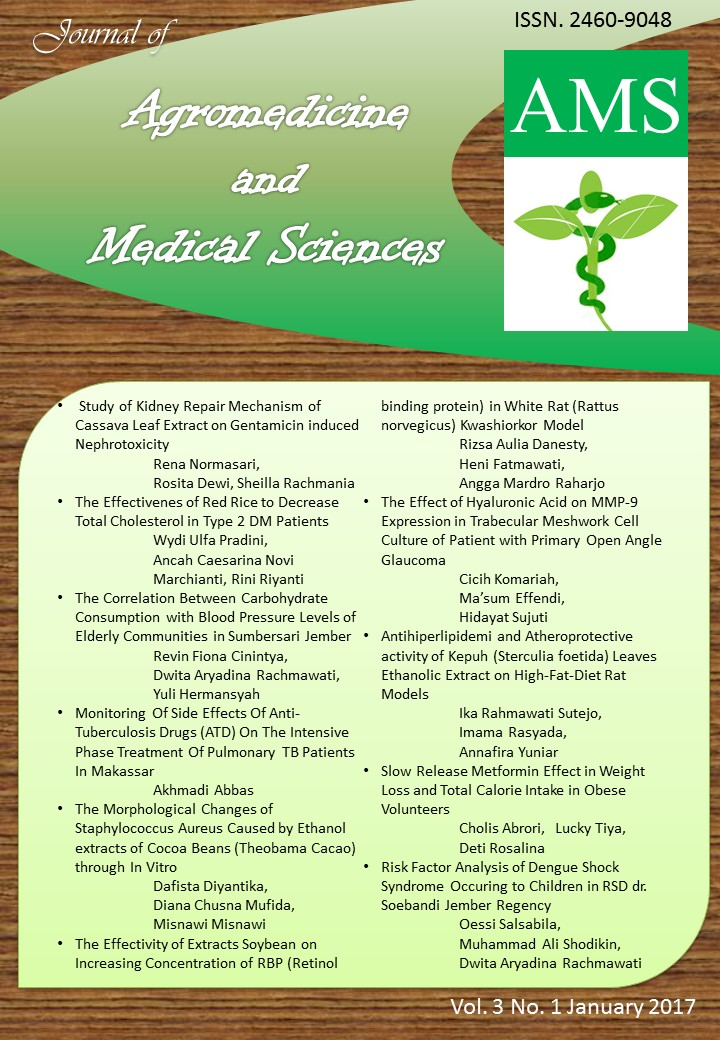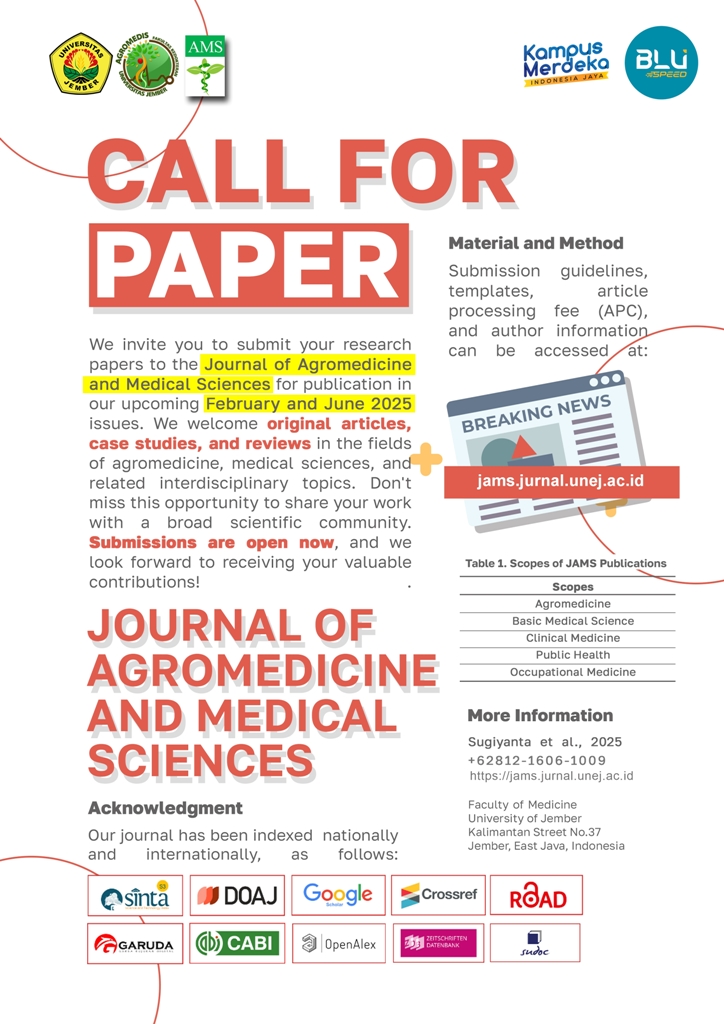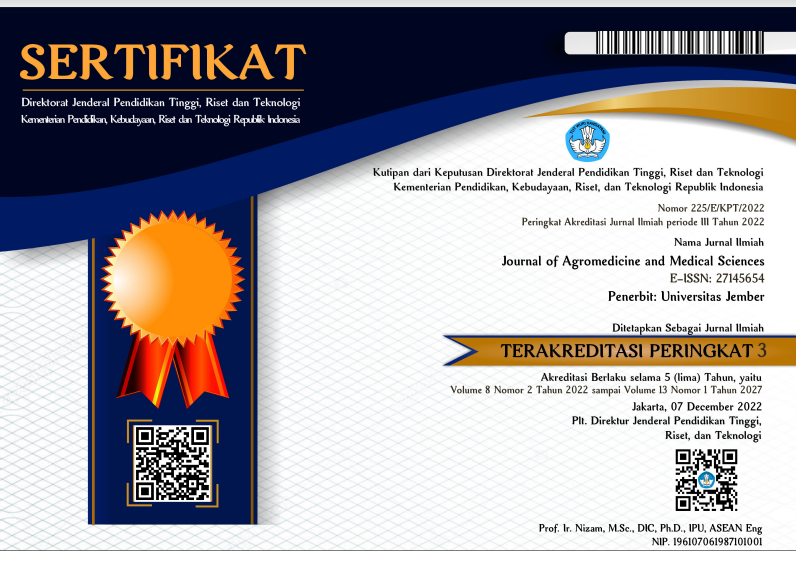Antihiperlipidemi and Atheroprotective activity of Kepuh (Sterculia foetida) Leaves Ethanolic Extract on High-Fat-Diet Rat Models
DOI:
https://doi.org/10.19184/ams.v3i1.4097Abstract
Cardiovascular disease causes the highest mortality rate in the world. Atherosclerotic plaque is the most common etiology of cardiovascular disease. High levels of cholesterol in circulation is the pathophysiology of atherosclerosis formation. Atherosclerosis risk can be lowered to 20-40% with statins. Statins are effective in lowering total and LDL cholesterol, but these drugs have been reported to cause side effects. Therefore, it needed an alternative medicine to prevent the process of atherosclerosis using kepuh leaves (Sterculia foetida). Flavonoids contained in Kepuh leaves improve lipid profiles. The aims of this study is to prove the effectiveness of Sterculia foetida in lowering cholesterol, triglyceride and reduce the amount of foam cells on high-fat-diet induced rats. The research design is quasi-experimental with post test only design. Animals are grouped into normal group, negative control group and three treatment groups that were given kepuh leaves extract at the dose of 200 mg/kgBB, 400 mg/kgBB, and 800 mg/ kgBB. Rats were given high-fat diet of initial intravenous adrenaline injection 0.006 mg/200 gBB and duck egg yolks 5 g/kgBB for 21 days. Cholesterol and triglycerides were measured by enzymatic methods and aortic tissue stained with HE. ESf reduce cholesterol significantly and reduce the amount of foam cells on aorta.
Keywords: cholesterol, triglyceride, kepuh leaves, foam cell, high-fat-diet























